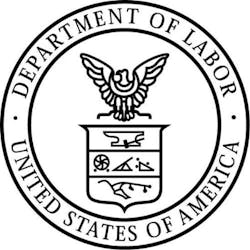NAMA Announcement: Department Of Labor Releases Two Important & Impactful Regulations
NAMA, the association representing the U.S. convenience services industry, announced that the Department of Labor released two regulations impacting the industry.
Paid Sick Leave - This week, the Department of Labor (DOL) released its final rule requiring paid sick leave for contractors. The rule requires that all employees working on a federal contract be afforded seven days of paid leave annually, including for family care and absences resulting from domestic violence, sexual assault and stalking. Any days not used within 12 months are permitted to be carried over to the next year.
The final rule applies to four major categories of contractual agreements:
1. Procurement contracts for construction covered by the Davis-Bacon Act (DBA)
2. Service contracts covered by the McNamara-O'Hara Service Contract Act (SCA)
3. Concessions contracts, including any concessions contracts excluded from the SCA by the Department of Labor's regulations at 29 CFR 4.133(b)
4. Contracts in connection with Federal property or lands and related to offering services for Federal employees, their dependents, or the general public
Furthermore, any subcontract of a covered contract that (like the upper-tier contract) falls into one of these four categories is subject to the paid sick leave requirements.
The final rule applies to all covered contracts solicited and awarded on or after Jan. 1, 2017. For more detailed information, click here.
Employee Pay Data - The EEOC announced that beginning March 31, 2018 the annual Employer Information Form (EEO-1) will include employee pay data. Beginning with the 2017 report, private employers and federal contractors with 100 or more employees will have to report the employee wage data from employees' W-2's. For further information on this new EEOC mandate click here .
Just this week, NAMA Board members met with the Department of Labor's Wage and Hour Division and Occupational Safety and Health Administration officials to pro-actively introduce the industry during the annual Public Policy Conference. Industry leaders stressed the impact of overly-burdensome regulations on the convenience services industry. The information relayed and the relationships forged during the meeting are important for assisting the DOL with understanding the impact of future regulations issued by them.
